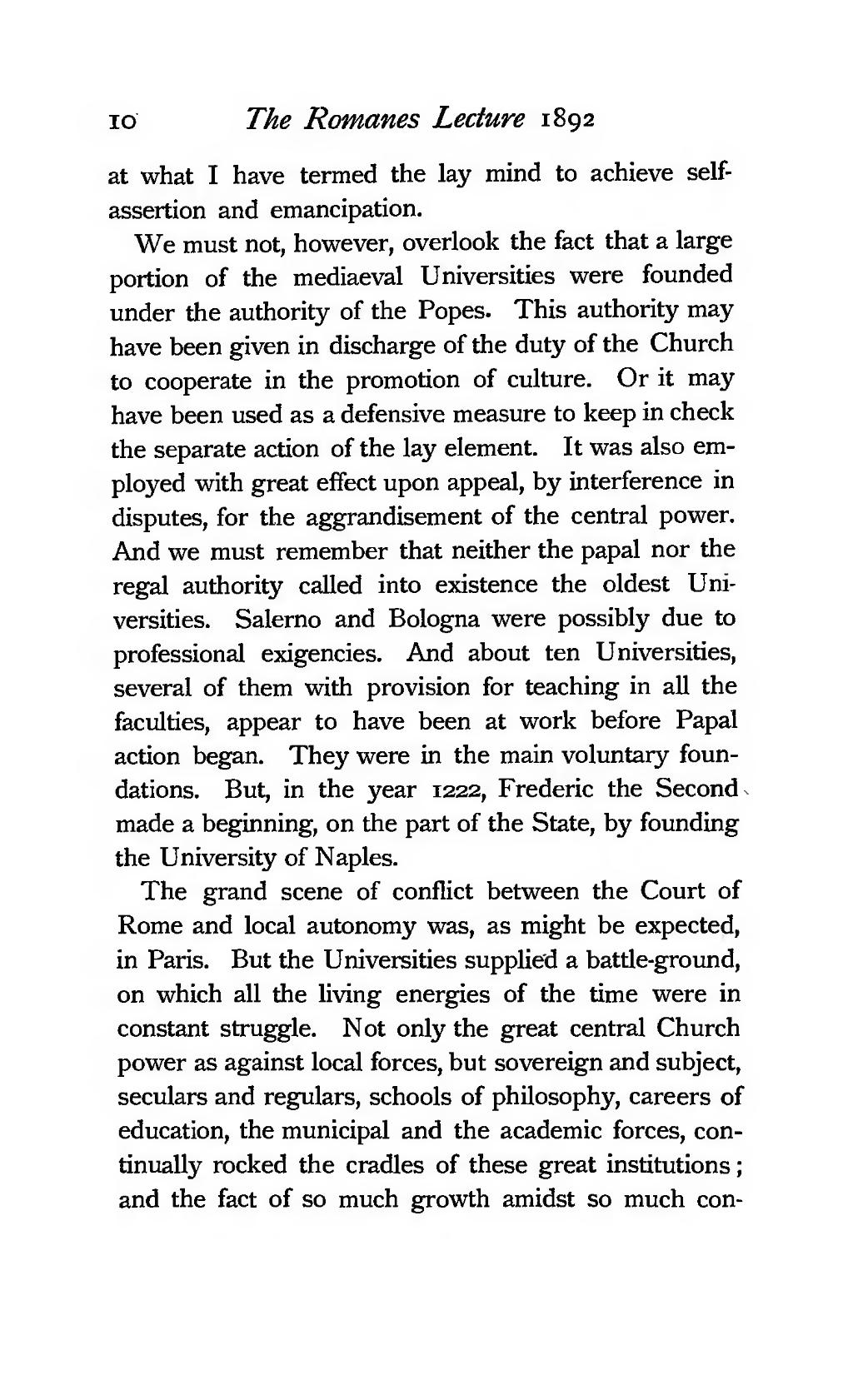at what I have termed the lay mind to achieve self-assertion and emancipation.
We must not, however, overlook the fact that a large portion of the mediaeval Universities were founded under the authority of the Popes. This authority may have been given in discharge of the duty of the Church to cooperate in the promotion of culture. Or it may have been used as a defensive measure to keep in check the separate action of the lay element. It was also employed with great effect upon appeal, by interference in disputes, for the aggrandisement of the central power. And we must remember that neither the papal nor the regal authority called into existence the oldest Universities. Salerno and Bologna were possibly due to professional exigencies. And about ten Universities, several of them with provision for teaching in all the faculties, appear to have been at work before Papal action began. They were in the main voluntary foundations. But, in the year 1222, Frederic the Second made a beginning, on the part of the State, by founding the University of Naples.
The grand scene of conflict between the Court of Rome and local autonomy was, as might be expected, in Paris. But the Universities supplied a battle-ground, on which all the living energies of the time were in constant struggle. Not only the great central Church power as against local forces, but sovereign and subject, seculars and regulars, schools of philosophy, careers of education, the municipal and the academic forces, continually rocked the cradles of these great institutions; and the fact of so much growth amidst so much con-
